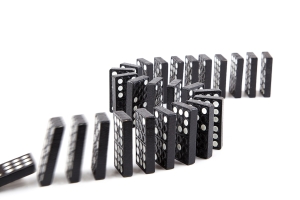
Eniola King, MPsy, PsyD Candidate, Institute for the Psychological Sciences

Stacy Ogbeide, PsyD, ABPP, Board Certified Clinical Health Psychologist, UT Health San Antonio
Goals, goals, and more goals – a topic important for those living with chronic kidney disease and going through dialysis. Self-management is one of the hallmarks of having a chronic disease, yet many people living with chronic conditions do not know where to start. If you feel stuck in the management of chronic kidney disease or your options are no longer working, setting goals that are “SMART,” or specific, measurable, achievable, relevant, and time bound may be for you! There is research to support that those who write down their SMART goals have a higher likelihood of following through and sticking with their goals. So, don’t lose heart! We’d like to share a few thoughts and ideas about how to use SMART goals to improve the management of chronic kidney disease.
- S = Specific
- Set a specific and detailed goal to clearly describe what you want to achieve. Remember, it’s okay for your goal to be different from someone else’s and avoid being vague when stating your goal.
- M = Measurable
- Create a method to document your progress to help you identify your results and determine how close or far you are from reaching your goal.
- A = Achievable
- Choose a goal that is challenging yet still sustainable for you to achieve. The key to selecting an attainable goal is to start with mini goals that will help you reach your overall objective.
- R = Relevant
- Find your “why.” Consider the purpose behind your goal. Start by asking yourself, “Why is this goal important to me?” or “What will achieving this goal help me accomplish?” By answering these questions, you will uncover your motivation to keep going, even on difficult days.
- T = Time Bound
- Decide on a start and end date to meet your goal. This will help you stay organized, on track, and one step closer to success, ultimately improving your overall quality of life.
Example: SMART goal for a sodium intake dietary change

domino effect, black wooden domino line curve
- Specific: Reduce sodium to help lower my blood pressure and slow down chronic kidney disease by eating less than 1,500mg of sodium each day.
- Measurable: I will track my sodium intake by using a food diary and by reading nutrition labels to identify the amount of sodium per serving for each meal.
- Achievable: I will choose more foods that are lower in sodium to eat each day such as fresh fruits and vegetables, sodium-free seasonings, and stop eating fast food for one month.
- Relevant: If I reduce my sodium intake it can slow down the damage to my kidneys, reduce my blood pressure, support healthy aging, and improve my overall quality of life.
- Time Bound: I am going to start monitoring my sodium intake on the first day of September until the last day of the month.
Managing kidney disease and going through dialysis requires many health behavior changes. Setting clear and SMART goals can help you be successful and flourish in your life!
Resource:
Beaulieu, M., Normand, M. P., & Miltenberger, R. G. (2024). Using behavioral skills training to teach goal setting for health behaviors. Behavioral Interventions. ttps://doi.org/10.1002/bin.2041




